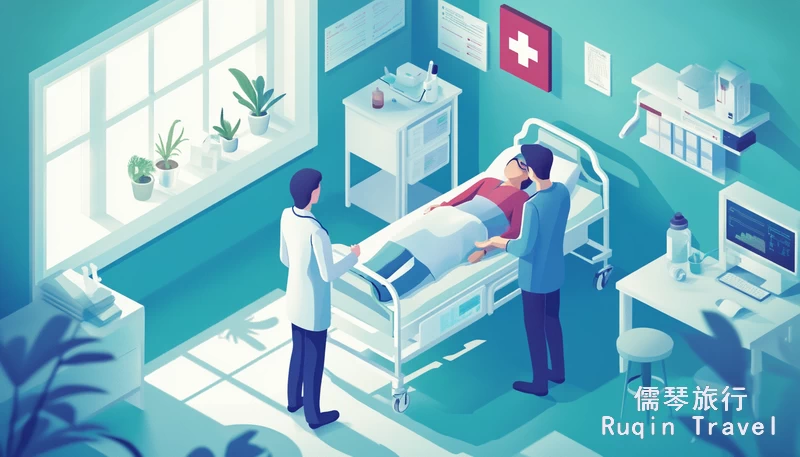When planning a trip to China, understanding the health and medical care in China is crucial. This guide aims to equip foreign tourists with essential information about staying healthy while traveling in China. We’ll cover key aspects like health insurance, medical facilities, common health issues, necessary vaccinations, and tips for handling medical emergencies. By the end of this guide, you’ll feel confident and prepared for your journey.
Overview of Health Care in China
China has a vast and diverse healthcare system. Public hospitals dominate the landscape, offering various services at different levels. Additionally, private hospitals cater to those seeking specialized care. The Chinese government continues to invest in healthcare, improving facilities and access.
However, navigating the health and medical care in China can be daunting for foreigners. Language barriers and cultural differences often pose challenges. But fear not! This guide will help you understand the basics and make informed decisions during your stay.
Understanding the Chinese Healthcare System for Tourists
First, it’s essential to grasp how the healthcare system in China operates. Public hospitals are categorized into three tiers. The first tier includes local clinics, often the first point of contact. The second tier consists of county hospitals, which provide more comprehensive services. Lastly, the third tier encompasses major hospitals, offering specialized care.
For tourists, it’s advisable to visit international clinics or foreign-friendly hospitals. These facilities often have English-speaking staff and cater to expatriates and travelers. They may be more expensive but offer a more comfortable experience.
Health Insurance for China Trip
Before traveling to China, ensure you have adequate health insurance. Check whether your policy covers international travel. If not, consider purchasing travel insurance that includes medical coverage. This is crucial, as medical expenses can add up quickly in China, especially in private hospitals.
Moreover, some hospitals may require upfront payment. Having insurance ensures you can access quality care without financial strain. Also, keep a copy of your insurance details handy, as you may need to present them during hospital visits.
Vaccinations for Travel to China
Vaccinations are a vital part of travel preparation. The World Health Organization (WHO) recommends several vaccinations for travelers to China. These include Hepatitis A and B, Typhoid, Japanese Encephalitis, and Rabies. Additionally, make sure your routine vaccinations are up to date.
It’s advisable to consult your healthcare provider six to eight weeks before departure. They can provide personalized advice based on your travel itinerary and health status. This proactive approach can prevent potential health issues during your trip.
Common Health Issues in China
While China is generally safe, there are some common health issues to be aware of. Air pollution, sand storm, especially in major cities, can cause respiratory problems. It’s wise to monitor air quality levels and wear masks if necessary. Also, be cautious about food and water. Stick to bottled water and avoid street food if you’re unsure about its safety.
In addition, digestive issues can be common due to changes in diet. Carry over-the-counter medications for common ailments like diarrhea. Knowing these issues in advance can help you take preventive measures and enjoy a hassle-free trip.
Staying Healthy in China: Tips and Precautions
Staying healthy in China requires a few simple precautions. Firstly, always wash your hands before eating. Hand sanitizers are handy when soap and water aren’t available. Secondly, drink plenty of water to stay hydrated, especially in hot climates. Thirdly, be cautious with food. Choose well-cooked dishes and avoid raw or undercooked items.
Furthermore, protect yourself from mosquito bites, especially in rural areas. Use insect repellent and wear long sleeves if possible. Lastly, be mindful of your physical limits. High altitudes or strenuous activities can be challenging. Listen to your body and rest when needed.
Medical Facilities for Tourists in China
China boasts a wide range of medical facilities. Major cities like Beijing, Shanghai, and Guangzhou have international hospitals catering to foreigners. These hospitals offer English-speaking staff, Western-trained doctors, and familiar standards of care. They are well-equipped to handle various medical needs.
In contrast, smaller cities may have fewer facilities. However, public hospitals in these areas can still provide adequate care. It’s advisable to research hospitals near your travel destinations. Knowing where to go in case of an emergency can save valuable time.
How to Find a Doctor in China as a Foreigner
Finding a doctor in China can be challenging due to language barriers. However, many international hospitals have directories or websites in English. Additionally, some hotels have partnerships with local clinics and can assist in finding a doctor. Another option is to use medical concierge services, which provide assistance in navigating the healthcare system.
Moreover, mobile apps and online platforms can help locate nearby hospitals and clinics. Platforms like WeChat also offer appointment booking and consultation services. These tools can be invaluable for tourists needing medical attention.
What Health Insurance Covers in China
Health insurance coverage in China can vary depending on your provider and policy. Generally, travel insurance covers emergency medical expenses, hospitalization, and evacuation. Some policies may also include outpatient services and prescription medications. It’s crucial to understand your policy’s terms and conditions.
Moreover, check whether your insurance includes direct billing with local hospitals. This can simplify payment processes and reduce out-of-pocket expenses. If direct billing is unavailable, keep all receipts and documents for reimbursement purposes.
Handling Medical Emergencies in China
In the event of a medical emergency, knowing what to do is crucial. First, contact your embassy or consulate for assistance. They can provide information on local hospitals and medical services. Secondly, if you need an ambulance, dial 120. However, be aware that response times may vary.
Additionally, it’s wise to carry a basic first aid kit. Include essentials like bandages, antiseptic wipes, and any personal medications. Also, consider downloading translation apps to communicate with medical staff. Preparing for emergencies can help you remain calm and make informed decisions.
Emergency Medical Services in China for Tourists
Emergency medical services in China are generally reliable, especially in urban areas. Ambulances are equipped with basic life support and can transport patients to the nearest hospital. However, advanced life support may not be available in all regions. Thus, understanding your options is essential.
Moreover, international hospitals often have 24-hour emergency rooms. These facilities can handle urgent medical issues and provide specialized care. Keep the contact information of nearby hospitals and your embassy handy. In an emergency, quick access to these resources can be life-saving.
Chinese Hospitals with English-Speaking Staff
For non-Mandarin speakers, finding hospitals with English-speaking staff is crucial. Major cities like Beijing and Shanghai have several international hospitals. These facilities often have multilingual staff and offer services tailored to foreigners. Examples include Beijing United Family Hospital and Shanghai East International Medical Center.
Additionally, some public hospitals have special departments for foreigners. These departments usually offer translation services and more personalized care. It’s advisable to research and identify hospitals with English-speaking staff before your trip. This preparation can ease the stress of seeking medical care in a foreign country.
Foreign Clinics in China
Foreign clinics are another option for tourists seeking medical care in China. These clinics are often smaller and provide outpatient services. They cater specifically to expatriates and tourists, offering a range of medical services. Common services include general consultations, vaccinations, and minor procedures.
Moreover, foreign clinics often collaborate with international hospitals for specialized care. This network ensures that patients receive comprehensive treatment if needed. These clinics are ideal for non-emergency medical issues and routine check-ups. They provide a familiar environment and high-quality care.
Tips for Staying Healthy While Traveling in China
Staying healthy while traveling in China involves a few key strategies. Firstly, stay hydrated and drink bottled water. Tap water in China is not potable, so avoid using it for drinking or brushing teeth. Secondly, be mindful of food safety. Stick to well-cooked meals and avoid raw or undercooked foods.
Additionally, protect yourself from air pollution by checking air quality levels. Wear masks on days with high pollution levels, especially in major cities. Lastly, maintain personal hygiene. Wash your hands frequently and use hand sanitizer when necessary. These simple tips can help you stay healthy and enjoy your trip.
Navigating health and medical care in China may seem challenging, but with proper preparation, you can enjoy a safe and healthy trip. Understanding the healthcare system, securing adequate insurance, and taking preventive measures are key steps. Whether you’re exploring bustling cities or serene landscapes, this guide equips you with the knowledge about the health and medical care in China to handle any medical situation. Stay informed, stay healthy, and enjoy your journey in China.
More China Survival Guide
Prepare for smooth travels with the China Survival Guide, your go-to resource for practical advice on navigating daily life in China. From essential language tips and transportation know-how to safety guidelines and local etiquette.



